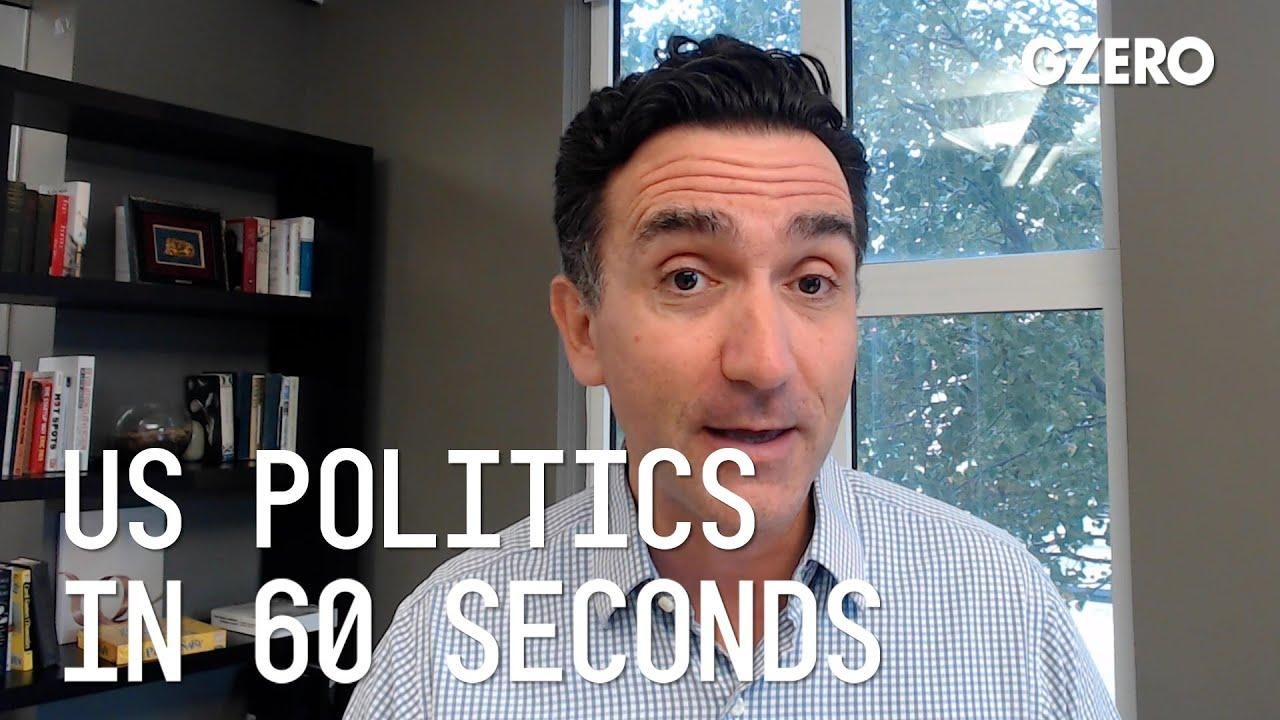US Politics In 60 Seconds
Will the 2022 midterms affect US support for Ukraine?

Will the 2022 Midterms Affect US Support For Ukraine? | US Politics In :60 | GZERO Media

Jon Lieber, head of Eurasia Group's coverage of political and policy developments in Washington, DC shares his perspective on US politics.
How is the US policy towards Ukraine shifting?
With Republicans well positioned to take control of the House of Representatives next year, the next likely Speaker of the House, Kevin McCarthy, recently warned that the US would no longer give a "blank check" to Ukraine when Republicans were in charge. This has lots of folks worried about a softening commitment to financing the Ukrainian defense against the Russian invasion.
But should they be? The United States has committed over $60 billion in aid so far to fund the military effort, humanitarian aid, and to directly finance the Ukrainian government. That is a lot of money that passed very quickly with little debate in the US, though it is broadly in line with US public opinion. A poll from the Chicago Council on Global Affairs found that 80% of Americans continue to support US economic and diplomatic sanctions against Russia.
Over 70% support providing additional arms and military supplies to Ukraine, as well as economic assistance. But as the war is dragged on, a debate in Washington about this money and the overall US strategy is starting to grow.
Republicans so far have been more outspoken in criticizing the funds. The criticisms have ranged from Senator Rand Paul trying to create an inspector general to oversee where the funds are going to Ohio Senate candidate and likely future senator JD Vance saying he didn't really care about Ukraine and other Republicans openly worrying about being baited into a nuclear exchange with Russia.
A group of 30 House progressives recently sent a letter questioning the administration's open ended policy towards Ukraine. Turns out the letter was over three months old and was quickly disavowed by their signatories who were criticized from the left for helping the Russian cause. But this does raise a question: what is the Biden administration's endgame in Ukraine? So far, the US commitment has been seemingly limitless with the US providing material and intelligence support to give the Ukrainians an advantage when facing an underwhelming Russian army.
White House Spokesman, John Kirby, recently said that it would be up to the Ukrainians to decide what success looks like and when to negotiate. But Kirby doesn't get to decide how much money to send to the Ukrainians. Congress does. The Chicago poll found that Americans were split on the degree of US commitment, with 60% saying that Americans should support Ukraine "for as long as it takes", while 40% want the US to settle for peace as soon as possible.
For its part, the White House is preparing for the increased resistance to open ended Ukraine aid next year by considering asking Congress to send an enormous additional appropriation of money, $50 billion, potentially in the lame duck session of Congress before the new crop of Republicans come in.
But the White House also does not have a good public answer for how it will respond should the war escalate further. As the Russian military has faced setbacks, the Ukrainians could potentially be emboldened to try and retake Crimea, which was annexed by the Russians in 2014 and would be seen as a major escalation by Moscow that the US would probably not support. And the Russians could be emboldened to take a step that has never happened before, which is using a tactical nuclear weapon on the battlefield, a move that would be universally condemned by other countries, but would essentially force the US to respond and probably get involved directly militarily.
No matter how you feel about the importance of Ukraine to American voters, these are legitimate questions that should be a matter of public debate. A debate has not happened so far as the US has aggressively backed Ukraine.
With close ties to both the US and China, can Singapore survive in an increasingly fragmented and chaotic world? Singapore’s President Tharman Shanmugaratnam joins Ian Bremmer on the GZERO World Podcast.
Think you know what's going on around the world? Here's your chance to prove it.
This week, Prime Minister Keir Starmer became the first UK leader to visit China in eight years. His goal was clear: build closer trade ties with Beijing.